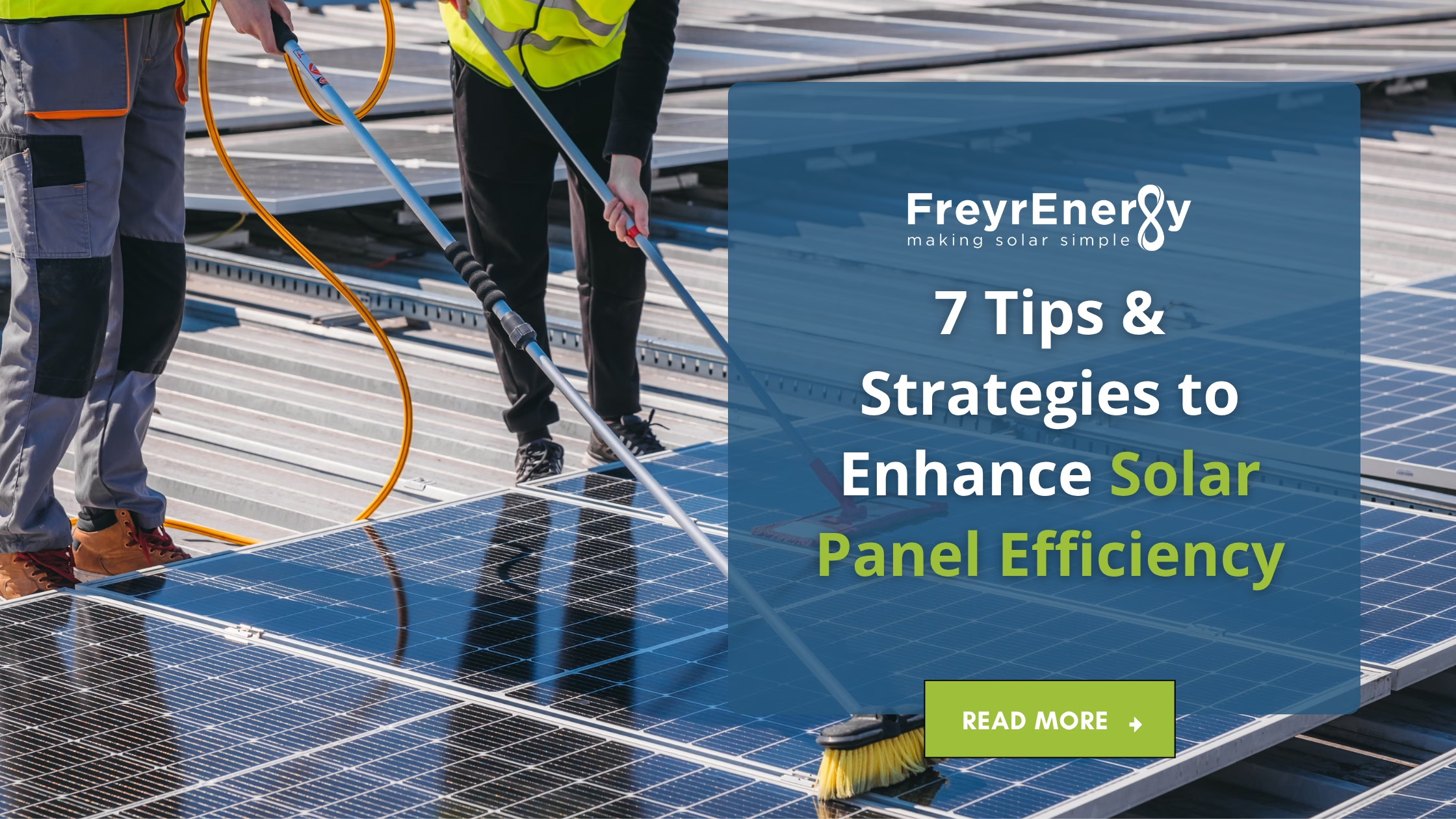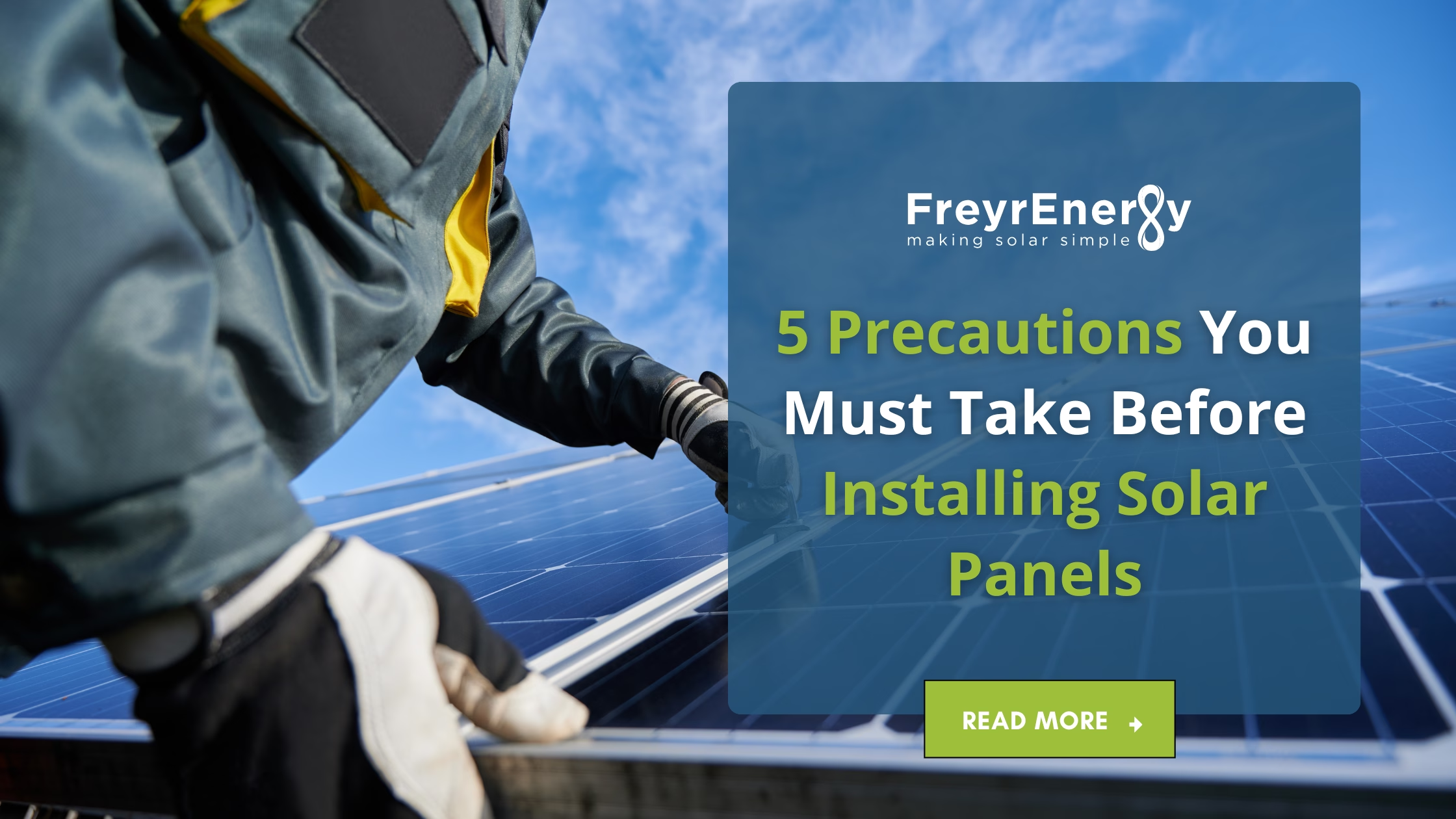Solar energy today is the best alternative to conventional energy. It has several benefits, from financial to environmental, and is reliable. India has abundant sunlight, which also makes solar energy production a viable option for homeowners and businesses. No wonder solar energy is gaining popularity and being favoured by most Indians.
However, there are a few myths about the functionality of solar energy in winter. Many feel that solar efficiency in winter drops significantly, as solar panels cannot absorb much heat and cannot produce the required electricity.
The blog aims to address these myths and debunk them. After reading this article, you may be in a better position to understand how solar panels during winter function. It will also help you to remain firm in installing solar panels in winter, which is just around the corner.
In addition, the blog also gives tips on how to maintain solar panels during winter for optimum efficiency and how to enhance solar power in winter.

Myth 1: Solar efficiency in winter drops substantially
Let’s debunk this myth with solid facts. As tricky as it may sound, solar panels work more efficiently in cooler temperatures.
Let’s try to understand this step by step. First, the cold air allows electricity to move through the panels easily, resulting in less energy loss. Secondly, in cooler weather, the electrons carrying electricity remain relaxed, keeping the voltage or electrical pressure high. All these factors contribute to enhancing the efficiency of solar panels in winter.
The latest technological innovations have made it possible to have the best solar panels for winter use.
Some key innovations include perovskite solar cells, which can capture more sunlight than regular silicon ones, and tandem solar cells that combine different technologies for better performance. Other advancements include solar panels that work from both sides, special coatings to enhance performance, solar trackers that follow the sun, and even solar farms that float on water. Solar trackers, in particular, help panels produce more energy by moving to catch the most sunlight, even on cloudy days.
Myth 2: No Solar Energy is produced during winter
Modern solar panels can produce electricity all year long by using special cells that turn sunlight into power. These cells work even on cloudy days and in winter because they need light, not heat, to generate energy.
Solar systems are built to work even on cloudy or foggy days because they use light, not just direct sunlight, to create energy. The special N-type cells in cold weather solar panels can capture scattered light from clouds and fog and still make electricity. This allows solar panels to keep producing a good amount of energy throughout the year, no matter the weather.
Myth 3: Shorter daytime results in less solar energy in winter
On clear winter days, solar panels work at their best because the cold weather helps electricity flow more easily, making the panels perform better. The cold temperatures help to keep electrical resistance at a low, helping better solar energy during winter.
Another thing to consider is that most Indian regions receive average sunlight throughout the year. So even if the days are shorter, the cold weather solar panels are capable of producing electricity.
Maintenance Tips for Winter Success
Here are some maintenance tips for solar during the winter.
Regular Maintenance Checks
Winter maintenance is essential for solar panels’ optimal performance and longevity. Clear snow and ice (applicable to selective regions), inspect for damage and check wiring and mounting systems. Regular maintenance maximizes energy production and extends panel lifespan, making them a reliable source of clean energy.
Adjusting Panel Angles
Adjusting the angle of fixed solar panel systems during winter is crucial for maximizing sunlight exposure. A steeper angle, typically 15 degrees, captures more direct sunlight, enhancing the efficiency of solar in winter.
How to enhance solar power in winter
It’s essential to enhance solar power in winter by using the best solar panels for cold climates. How? Let’s understand.
Energy Efficiency Practices
Using energy-saving practices in winter can greatly improve how well your solar system works. Here are some useful tips you can try:
- Insulate Your Home: Insulate your walls, attics, and floors to retain heat. It will reduce energy consumption.
- Seal Leaks: Check for and seal drafts around windows, doors, and other openings. It will prevent heat loss.
- Use Energy-Efficient Appliances: Replace old appliances with energy-efficient models.
- Optimize Heating Systems: Use programmable thermostats to control heating.
- Maximize Natural Light: Open curtains and blinds during the day to let in natural sunlight. Close them at night to retain heat.
- Regular Maintenance: Ensure you regularly maintain your heating systems and solar panels.
- Switch to Energy Saving Lighting: Switch to LED bulbs for less energy consumption.
- Use Smart Power Strips: Reduce phantom loads from electronics that consume energy even when turned off.
Conclusion
Does solar power work efficiently in winter or do they entirely stop functioning is a common myth. On the contrary, it has been proven that modern solar panels work better during cold weather. Technological advances have enabled us to increase the efficiency of solar energy during winter.
It is also essential to maintain solar panels during winter to enable them to perform better. In addition, if you follow the tips to enhance solar power in winter, you may never fall short of the required solar energy for your home.
If any of your questions are left unanswered, please contact Freyr Energy to clear any doubts regarding solar efficiency in winter. Fryer Energy has all the expertise to install all-weather solar panels and can provide the best solar panels for cold climates.
Frequently Asked Questions
Cold temperatures lower electrical resistance. It allows solar cells to generate more electricity from sunlight. In addition, solar panels create electricity from light, not heat. So cold weather solar panels can still produce a lot of energy in cold temperatures.
Solar panel production drops by about 83% in winter compared to summer.
Clear dust, inspect for damage, and check wiring and mounting systems. Adjust panel angles to maximize sunlight exposure, typically 15 degrees, for better efficiency. It also helps you enhance solar energy during winter.
Yes. Solar panels are worth it in winter for the following reasons:
- Consistent energy production.
- Uninterrupted power supply.
- It allows you to save surplus energy in batteries. You can use the stored energy during an emergency or grid power breakup.



